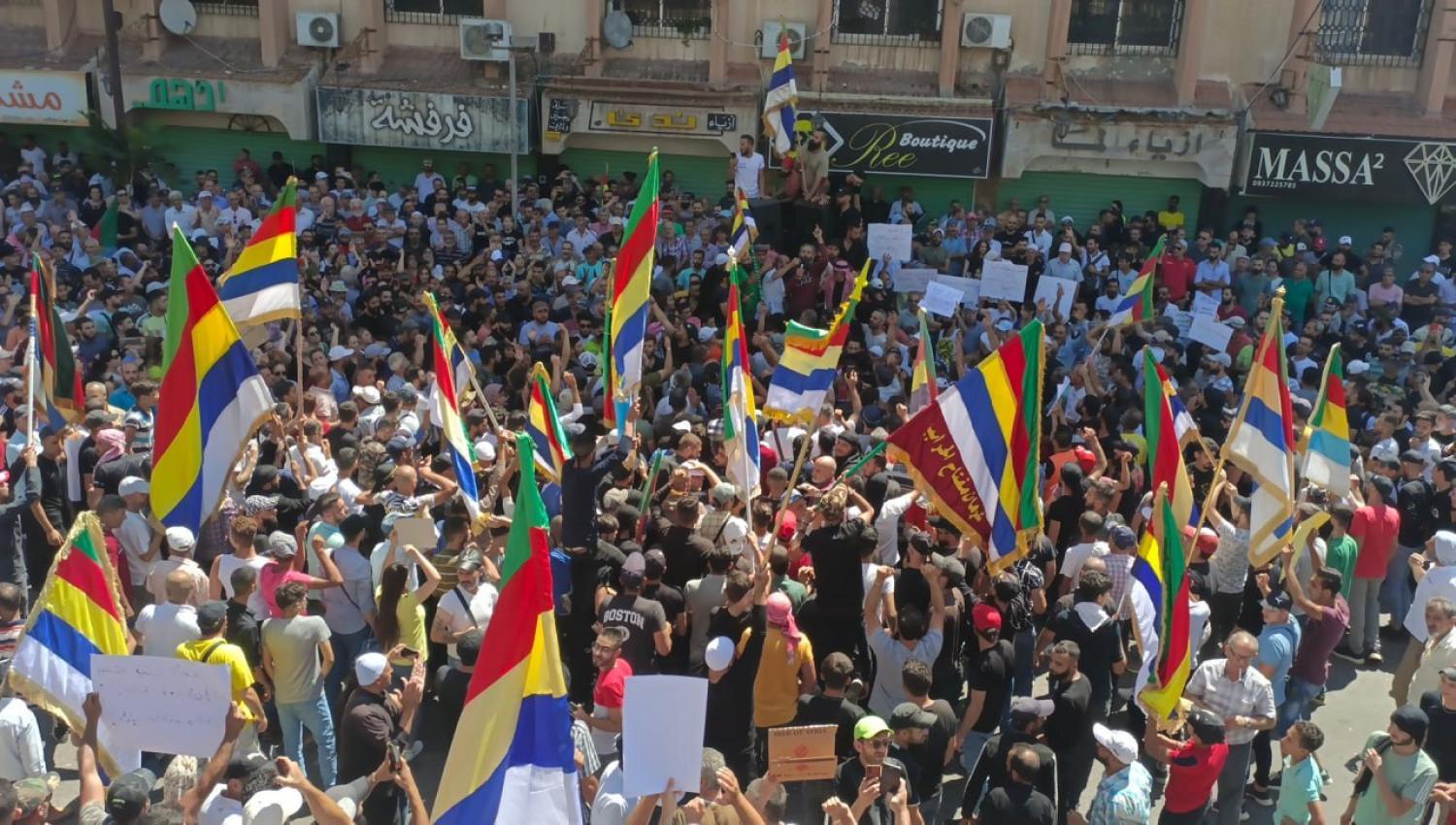Twelve years after the 2011 popular revolution in Syria began against the dictatorial regime in Syria, local people have again turned out in demand of rights. This at a time when much of the world thought that the uprising in the country had ended, especially following regional normalisation in May this year with the Syrian regime returning to a seat in the Arab League.
In al-Suwayda governorate, southern Syria, thousands of people have joined peaceful demonstrations in recent weeks calling for a change in the regime. They want the dictator Bashar al-Assad gone and the implementation of UN Security Council Resolution 2254, unanimously adopted in December 2015, requiring the formation of an “inclusive transitional governing body with full executive powers”. Much of the population in al-Suwayda have turned out, comprising the country’s Druze minority, protesting daily for more than a month.
This uprising came after several opposition voices spoke against the regime on the Syrian coast, birthplace of Assad.
Over the past 12 years, the regime has grimly clung to power, committing crimes against humanity and war crimes, including bombing civilians and the use of internationally prohibited chemical weapons. The regime has specifically targeted hospitals, schools and popular markets, practised torture and driven people from their homes. More than half of the Syrian people have been displaced, according to the United Nations, among the worst humanitarian disasters of the modern era.
The regime has survived due to support from Russia and Iran, who are complicit in heinous crimes against the Syrian people. The rest of the world offered only a tepid response to such crimes, which perhaps encouraged Russia to cross red lines in Ukraine, as they did in Syria, with no accountability. Now there is also concern about China’s interest in dealing with the Syrian regime.
Despite the persecution, Syrians in al-Suwayda still want political change and are brave enough to demand freedom and dignity. This movement is also compelled by economic need. While Syrians suffer in poverty and often without basic services, Assad and his family enjoy a luxurious life. Corruption is rife, with the regime linked to the burgeoning “Captagon” trade, making Syria the main manufacturing and supplying source of the drug, according to international reports.
These pressing problems in Syria and the regime’s ability to take military control may have prompted nearby Arab countries to adopt a step-by-step “solution”. But the regime has shown its true nature and will not take any steps. It continues to deny the suffering of Syrians and refuses to release detainees or reveal the fate of those forcibly disappeared. For years this obstinate regime has suffocated the country with a flood of excuses and propaganda and does so even now.
The movement in al-Suwayda places Arab countries in a different position, as it is clear today that the regime has not “won” as claimed and is not interested in implementing any steps or commitments in line with the Arab League initiative. The regime’s response is to accuse demonstrators of collaborating with the West, seeking to divide the country throughout its security and media figures. Fears remain that the regime may turn to force to end the peaceful demonstrators, as it has done before.
Neighbouring countries do not want any new refugee waves. This view was clearly expressed by King Abdullah of Jordan in the UN General Assembly last month, saying “Jordan’s capacity to deliver necessary services to refugees has surpassed its limits”. This should be taken as a clear message to the regime – do not use violence again.
The al-Suwayda uprising has sparked hope for many Syrians in and outside the country, encouraging protests in Daraa, northern Syria, and various other governorates. This again reflects the legitimate aspirations of Syrians for democracy, to end the dictatorship and hold war criminals accountable. These steps are essential to resolve the regional security tensions associated with refugees and to allow people to return home. For the world, it’s a chance to right past mistakes and deal differently with the legitimate uprising of Syrians through real pressure to achieve a political solution.

